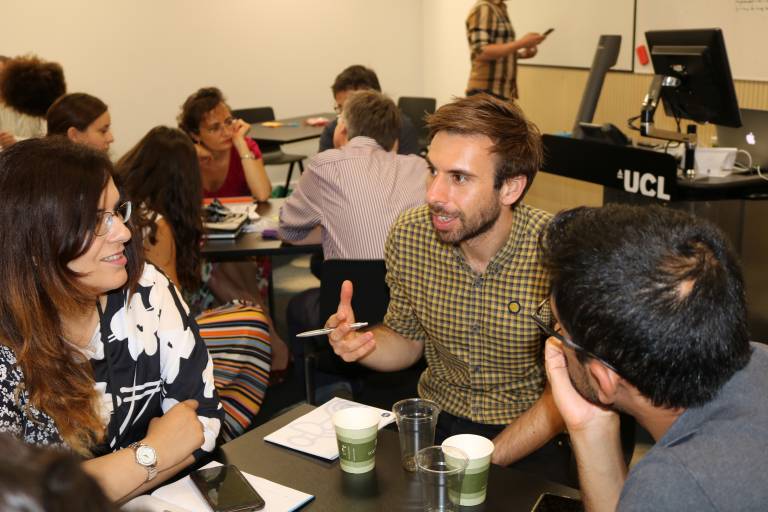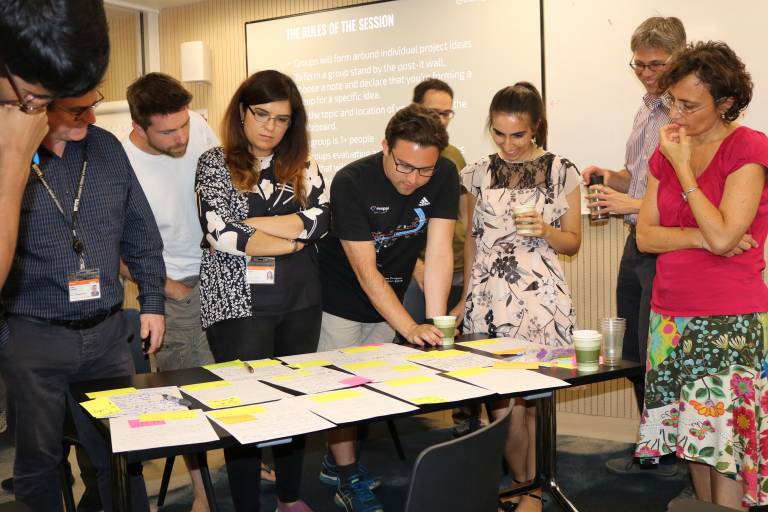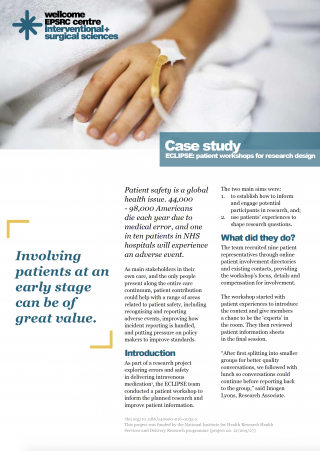We support, train and galvanise our researchers to engage with the public and patients.
Below is an example of a recent training session we ran. There will be more examples of support and training coming soon, please keep an eye out:
Making Public Engagement Work for You - Generating Ideas Linked to Research
IHE/WEISS workshop makes public engagement ideas a reality
On 25 July, researchers and students from WEISS and IHE came together for a productive one-day workshop on public engagement.
Facilitated by Dan Taylor (WEISS Public Engagement Coordinator) and Dr Steve Cross (Wellcome Trust Engagement Fellow), the event aimed to kickstart participants’ imagination and turn their ideas into real-life public engagement activities.
Steve launched the day with an inspiring introduction. He is no stranger to UCL, having spent seven years as the university’s Head of Public Engagement. Now, Steve performs science-based stand-up comedy and runs Science Showoff, an open mic night for science communicators.

He shared with us the key to a successful public engagement activity - start by picking a clear-cut audience. For example, instead of designing an activity for ‘children’, narrow this down. What captivates a seven-year-old may not be so interesting to a GCSE pupil. Consider your audience’s location, their education-level and their interests - this will set you off on the right track.
Next, Dan Taylor described what ‘public engagement’ means for WEISS and IHE. The term can have very different meanings depending on who you ask, but Dan puts it simply:
“Public engagement is a two-way process, involving interacting and listening to the public to debate and shape research for mutual benefit”.
Why is this so important? The public are our shareholders and we have a responsibility to demonstrate to them how our research affects people and helps advance society. Recognising this, funding bodies now require public engagement as part of a funding proposal.
Our galvanised participants were split into brainstorming groups and given a short amount of time to generate as many creative ideas as possible. They produced an impressive range of concepts, including healthcare hip-hop and using Netflix to demonstrate data analysis. They then picked their favourite ideas and worked with their teammates to turn these into fully-fledged plans to pitch to our panel.

Jonathan Shapey’s team came up with an imaginative way to bridge different disciplines and link to the curriculum. MRI scanners produce an interesting range of noises. They would provide recordings of these to GCSE music students as inspiration for their composition coursework - teaching them about the technology in the process.
The teams can now apply to receive £500 in funding to make these projects a reality. If you have an idea for public engagement that you would like to make a reality, contact Dan Taylor for support and funding advice.
 Close
Close


